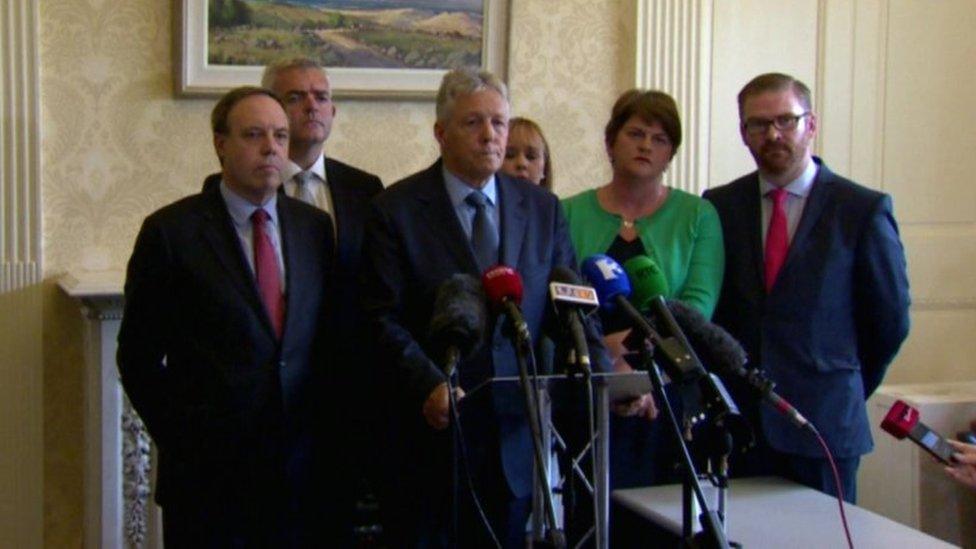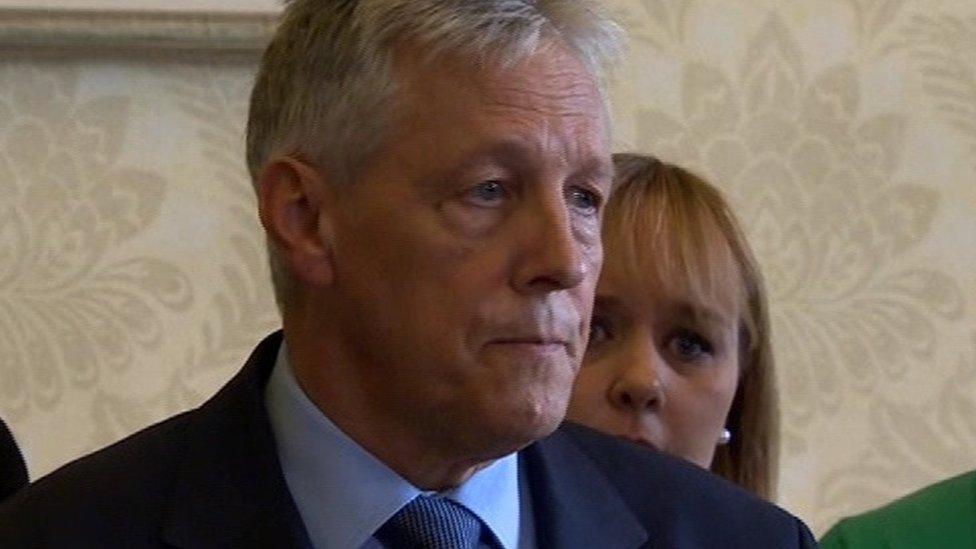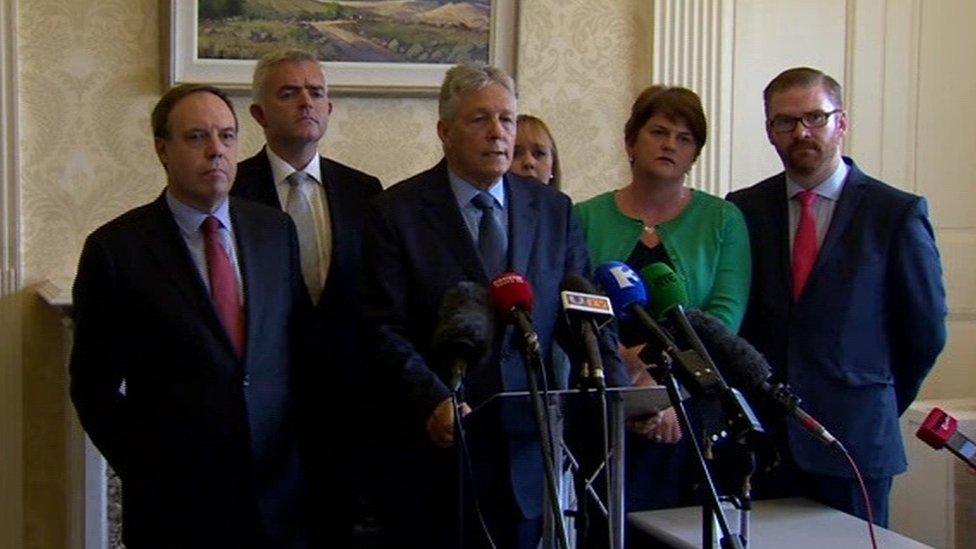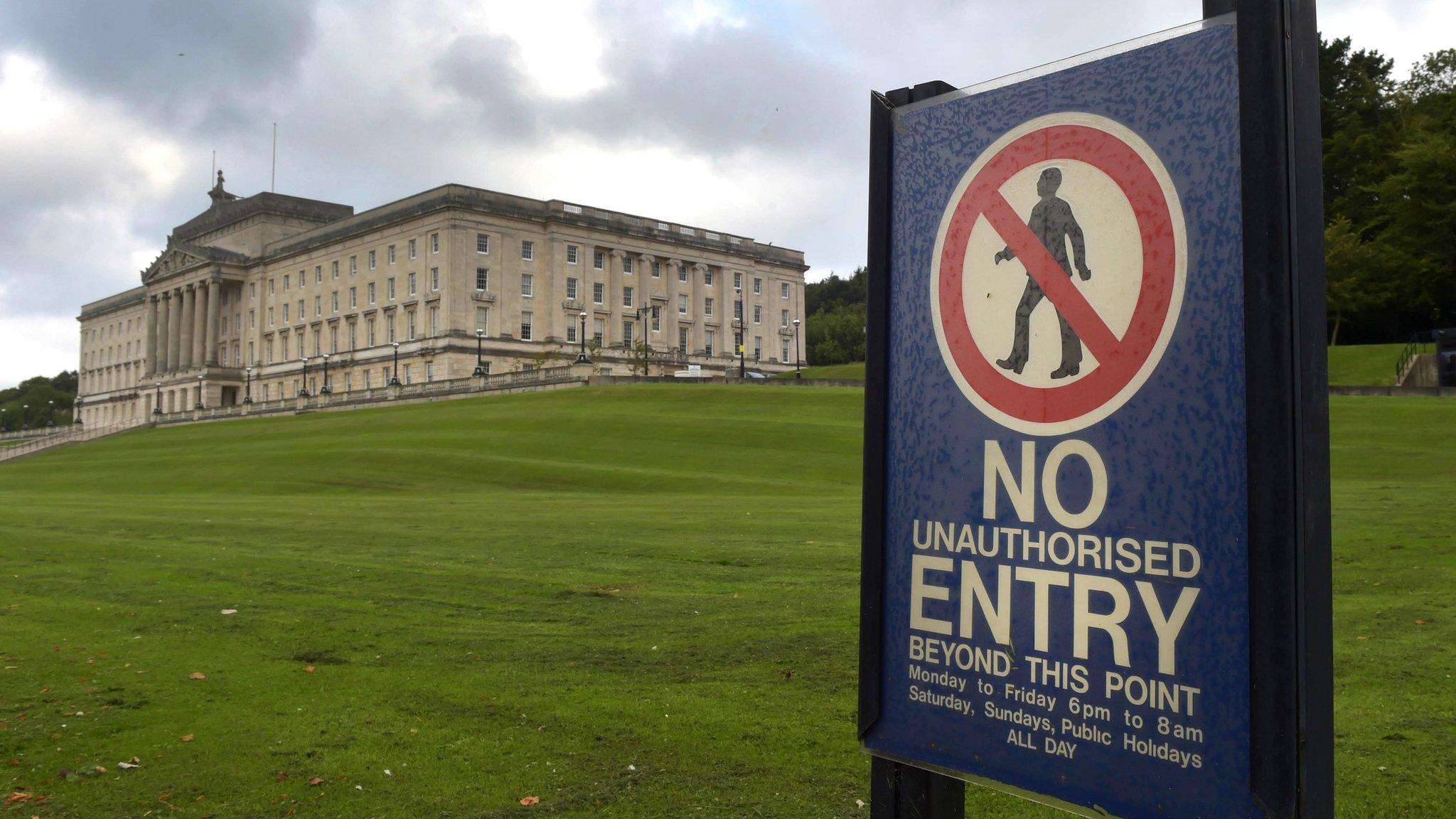Stormont crisis: Acting NI leader Arlene Foster criticised for 'rogue ministers' remark
- Published
Arlene Foster said she would stop "rogue Sinn Féin or renegade SDLP ministers" from taking decisions that would harm the community in Northern Ireland
Northern Ireland's acting first minister has said she will protect Stormont from what she called "rogue" republican and nationalist ministers.
Arlene Foster is leading the Northern Ireland Assembly after Democratic Unionist Party leader Peter Robinson stepped aside over a political crisis.
She is now the only DUP minister left in Stormont's Executive after a crisis sparked by an ex-IRA man's murder.
But Sinn Féin criticised her comments as a "bigoted" throwback to the past.
The crisis has escalated following the murder of ex-IRA man Kevin McGuigan in Belfast last month and a police assessment that former IRA members may have been involved in the killing.
Mrs Foster said Mr Robinson's move and the resignations of three other DUP ministers was aimed at creating "time and space" for new political talks on the way forward for Northern Ireland's devolved political institutions.
Speaking on the BBC's The View programme, Mrs Foster said she has stayed on the executive in order to act as a "gatekeeper".
"I have been placed there as a gatekeeper to make sure that Sinn Féin and the SDLP ministers don't take actions that will damage Northern Ireland and principally, let's be honest, that damage the unionist community."
She added: "If anybody knows me and indeed knows the Democratic Unionist Party they know that I'm not going to put at risk to the people of Northern Ireland the possibility that rogue Sinn Féin or renegade SDLP ministers are going to take decisions that will harm the community in Northern Ireland."
However, speaking on the same programme, Sinn Féin's Gerry Kelly said her comments were a "throwback" to the past and displayed a "very bigoted view of what the institutions are about".
"To make this attack on nationalism - because it wasn't just republicanism but on nationalism - and call ministers 'rogue ministers' is a complete nonsense," Mr Kelly said.
"She actually said that her job was - which by the way it isn't - her job was to protect unionism. Her job as a minister is actually to serve all the people."
Earlier on Thursday, the British and Irish governments expressed concern over the latest developments and called for further talks between Stormont's five main parties.
The DUP had asked Westminster to pass emergency legislation to suspend the assembly but both Prime Minister David Cameron and Secretary of State Theresa Villiers said they did not think suspension was the right action to take.
The DUP then tried to secure an adjournment of the assembly, but the motion was defeated when Sinn Féin, the Ulster Unionists and the Social Democratic and Labour Party voted against it.
The US government also called for more talks to resolve the crisis, in a statement released through former senator Gary Hart.
Mr Hart acted as a US envoy during last December's Stormont House Agreement negotiations.
He said: "Northern Ireland's achievements are the result of dialogue and responsible leadership; now is the time to re-energise the parties' commitment to implementing the Stormont House Agreement and addressing remnant paramilitary activity."
"The United States remains actively engaged and will continue to support political progress."
- Published11 September 2015

- Published10 September 2015

- Published11 September 2015

- Published13 November 2015
